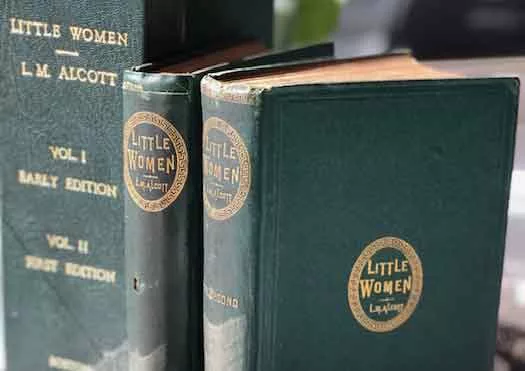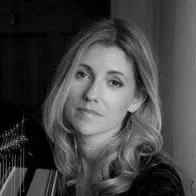
QUESTIONS
1. The world runs on gossip, and you love it. After all, you live in Concord in the year 1773, and winter days on the farm can be tedious. Gathering with your friends helps break up the hardships. Near the end of December, you hear from a nearby farmer’s wife that, on December 17th, a man from Boston suddenly showed up in Concord looking to relocate. You don’t have proof, and you’re certainly not one to point fingers, but you suspect this man was involved in some illicit behavior. What could it be? (Guess away - we promise we won’t tell anyone that we heard it from you.)
Click to show the answer
Answer: He may have been involved in the Boston Tea Party. As English subjects, American colonists were expected to follow English laws and pay taxes imposed by the King and Parliament. Boston lawyer James Otis summed up the colonists’ discontent writing that “no part of His Majesty’s dominions [should] be taxed without their consent,” i.e., “no taxation without representation.” The Tea Act passed by Parliament in May 1773, steeped many colonist objections to a boiling point, and on the night of December 16, 1773, led by the Sons of Liberty, colonists dressed in disguises headed to Boston Harbor where they boarded three ships loaded with tea owned by the English East India Company. They dumped 342 chests of tea into the harbor. Fearing repercussions, some participants immediately fled Boston and relocated elsewhere.
2. True or False: Despite neighborhood gossip and suspicions, the suddenly-arrived man from Boston in the above question is, by law, “presumed innocent until proven guilty in a Court of Law.”
Click to show the answer
Answer: False. The United States Constitution was first written in 1787 and expanded over time. The Fifth Amendment (1791) and the Fourteenth Amendment (1868) guaranteed due process of law and the right to a fair trial. However, it was not until 1895 that the Supreme Court decided on the presumption of innocence until proven guilty in the case of Coffin v. U.S. (156 U.S. 432)
3. In his journal, Massachusetts lawyer John Adams (later President Adams) called this event “The most magnificent Movement of all.” Was he referring to:
A.
His wedding to Abigail Adams
B.
The concluding Christmas Eve carols in Boston’s King’s Chapel
C.
New Year’s Eve fireworks over Boston harbor
D.
The Boston Tea Party
Click to show the answer
A. His wedding to Abigail Adams
B. The concluding Christmas Eve carols in Boston’s King’s Chapel
C. New Year’s Eve fireworks over Boston harbor
D. The Boston Tea Party
Answer: D. The Boston Tea Party. In his December 17, 1773, journal entry, Adams wrote, “Last Night 3 Cargoes of Bohea Tea were emptied into the Sea. This Morning a Man of War sails. This is the most magnificent Movement of all. There is a Dignity, a Majesty, a Sublimity, in this last Effort of the Patriots, that I greatly admire. The People should never rise, without doing something to be remembered—something notable and striking.” The events led to the start of the American Revolutionary War at the Battle of Lexington and Concord on April 19, 1775. This year (2023) marks the 250th Anniversary of the Boston Tea Party. Learn more at December16.org.
4. Related on her mother’s side of the family, Louisa May Alcott (1832-1888) was John Adams’ (1735-1826) fourth cousin twice removed. (Written another way - John Adams’ 3rd great-grandfather was Louisa’s 5th great-grandfather). On Christmas Eve of 1854, twenty-two-year-old Louisa placed what she called her “first born” into her mother’s Christmas stocking as a gift. What was this “first born” and what was it called?
Click to show the answer
Answer: Louisa’s first book, Flower Fables. Written when Louisa was sixteen years old, Flower Fables was a collection of short stories Louisa wrote for Ralph Waldo Emerson’s youngest daughter, Ellen. In 1854, Boston publisher James Redpath published the book just in time for Louisa to place it into her mother’s stocking on Christmas eve. In the accompanying letter to her mother, Louisa wrote, “I hope to pass in time from fairies and fables to men and realities.”
5. In the opening line of Louisa May Alcott’s 1868 book Little Women, Jo March grumbles, “Christmas won’t be Christmas without any….” what?
A.
Snow
B.
Firewood
C.
Visitors
D.
Presents
Click to show the answer
A. Snow
B. Firewood
C. Visitors
D. Presents
Answer: D. Presents
6. In Little Women, what did the March sisters do with their Christmas morning breakfast?
A.
Overcooked it
B.
Gave it away to a family in need
C.
Prepared it for their mother
D.
Invited Laurie and Mr. Laurence to join them
Click to show the answer
A. Overcooked it
B. Gave it away to a family in need
C. Prepared it for their mother
D. Invited Laurie and Mr. Laurence to join them
Answer: B. Gave it away to a family in need. The girls give their breakfast to the Hummels, a German family with a sick baby.
7. Which Louisa May Alcott story opens with the following line: “I’m so tired of Christmas I wish there never would be another one!” exclaimed a discontented-looking little girl, as she sat idly watching her mother arrange a pile of gifts two days before they were to be given.” (And for bonus points, about which prior book does this remind you?)
A.
Revival of Holiday Spirits
B.
A Christmas Dream and How it Came to be True
C.
Christmas at Plumfielde
D.
Little Women Part Second
E.
Edna Steals Christmas
Click to show the answer
A. Revival of Holiday Spirits
B. A Christmas Dream and How it Came to be True
C. Christmas at Plumfielde
D. Little Women Part Second
E. Edna Steals Christmas
Answer: B. A Christmas Dream and How it Came to be True. This story was included in Volume 1 of Lulu’s Library, a collection of stories that Louisa wrote for her niece Lulu. For many, this story recalls Charles Dickens’ Christmas Carol, which was published in 1843 when Louisa was eleven years old.
8. In his 1854 book Walden, what did Henry David Thoreau say was “the treasured wealth of the world and the fit inheritance of generations and nations?”
A.
Books
B.
Food
C.
Water
D.
Wilderness
Click to show the answer
A. Books
B. Food
C. Water
D. Wilderness
Answer: A. Books
9. If you wanted to share a holiday drink with friends in Concord, in which of the following year(s) would you be able to do so?
A.
1618
B.
1718
C.
1818
D.
1918
Click to show the answer
A. 1618
B. 1718
C. 1818
D. 1918
Answer: B, C, and D. Concord was founded in 1635. Prohibition was ratified on January 16, 1919, and went into effect in January 1920.
10. Which famous Concord resident said the following about gifts: “Next to things of necessity, the rule for a gift, which one of my friends prescribed, is that we might convey to some person that which properly belonged to his character, and was easily associated with him in thought…. The only gift is a portion of thyself. Thou must bleed for me. Therefore, the poet brings his poem; the shepherd, his lamb; the farmer, corn; the miner, a gem; the sailor, coral and shells; the painter, his picture; the girl, a handkerchief of her own sewing. This is right and pleasing, for it restores society in so far to the primary basis, when a man’s biography is conveyed in his gift, and every man’s wealth is an index of his merit.”
Click to show the answer
Answer: Ralph Waldo Emerson in an essay “Gifts” (published in Essays, Second Series).
Contact Barrow Bookstore for a list of sources. Barrowbookstore@gmail.com.
————————————————————————
For more than 50 years, Barrow Bookstore has been a favorite of residents and visitors alike, specializing in Concord authors and history, children’s books and literature. The shop also provides a wide array of gently read and rare titles ranging from paperbacks to first editions and original manuscripts. Staff members have all worked as tour guides and reenactors in Concord and are happy to share their knowledge about the town and its history. Discover more at barrowbookstore.com. More more


